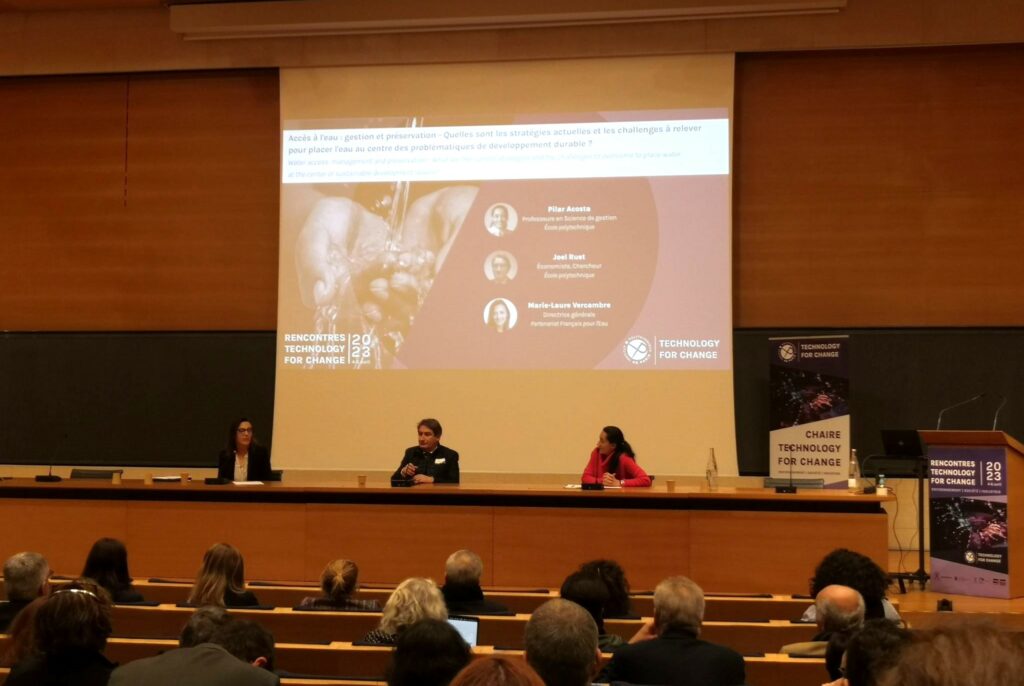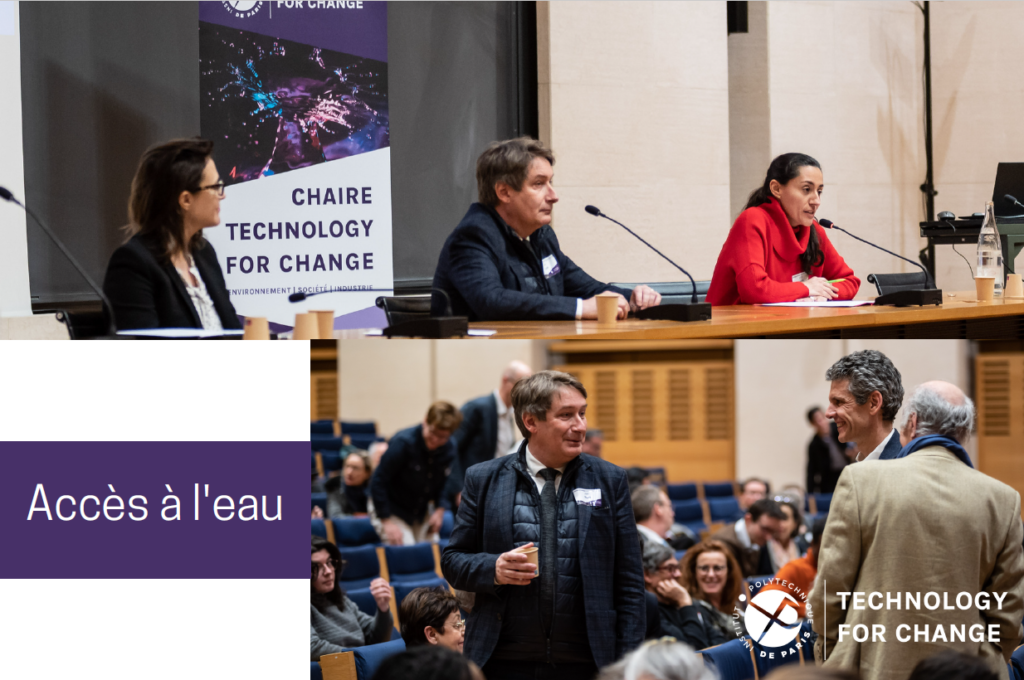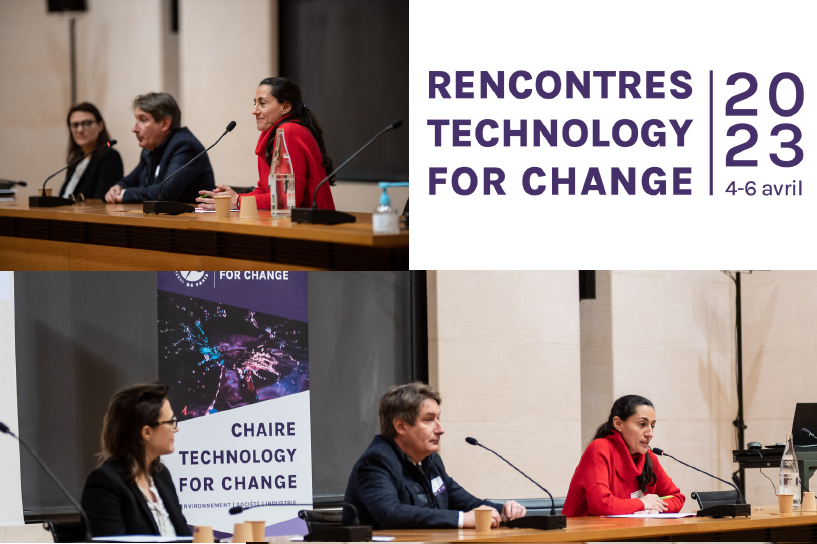From April 4 to 6, the Technology for Change Days 2023 were held in Paris, organized by the Chair “Technology for Change” of École Polytechnique. Joël Ruet, President, The Bridge Tank, spoke at the Opening Conference on April 4, in a session on water access and the preservation of water resources as a sustainable development issue.
The mission of the Technology for Change Conference is to assess the current state of affairs regarding the links between technology, society and industry in order to explore different approaches and perspectives for technological development and innovation that contribute to a more sustainable and inclusive world. The conference kicked off on April 4, 2023 with a session titled “Water access: management and preservation – What are the current strategies and the challenges to overcome to place water at the center of sustainable development issues?” which gathered:
- Pilar Acosta – Professor of Management Science, École polytechnique, IP Paris
- Joël Ruet – Economist, CNRS Researcher, École polytechnique, IP Paris & President of The Bridge Tank
- Marie-Laure Vercambre – Managing Director of the French Water Partnership
The session addressed some of the major issues and challenges surrounding water in our world today: what are the current strategies for managing access to water? for preserving access to water? What is the situation at the international level? How can water be placed at the center of sustainable development issues? To what extent is technology a lever to meet these challenges?
Marie-Laure Vercambre started by recalling the current context of global water crisis, with demand that is bound to grow by 1% per year until 2050. Agenda 2030 and Goal 6 of the UN SDGs summarise the many challenges in water resources management and conservation: access to drinking water, sanitation, water quality, rational use, integrated management of water resources, transboundary issues, governance, preservation of ecosystems, etc. The transversality of water issues presents a major challenge due to the silo mentality of the different users. Such an approach is not appropriate for the management of a common good but is difficult to inflect. Joël Ruet underlined that the organization of practices should be based on 3 axes: 1) optimization of the resource, 2) preservation/conservation by considering water and its ecosystems, 3) renaturation.
Technology is an important lever to meet these many diverse challenges: water transport, desalination, water treatment, or reuse. Responding to these challenges also requires more spatio-temporal data, for which technological tools are needed. Joël Ruet thus also reminded the audience of the importance of preserving the headsprings and headwaters of rivers. This is a major challenge since these are most often found in more remote areas. Taking the example of the Fouta Djallon Highlands in Guinea, a mountainous region home to the sources of some of West Africa’s largest rivers but threatened by the effects of climate change and demographic pressure, Joël Ruet illustrated this transversality of the actions required to preserve water resources. Such actions impact farming and forestry methods, agroforestry, as well as the need to create local data. The incubation of local start-ups is an interesting field of action to support the development of this technology and the data necessary for conservation action. These could also be mobilized for green finance mechanisms, as they need data to measure the impact of the transformational change they aim to fund.



